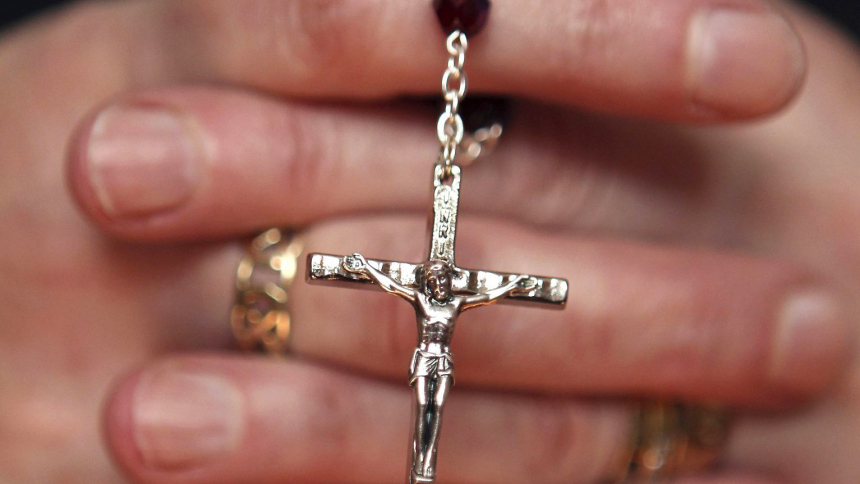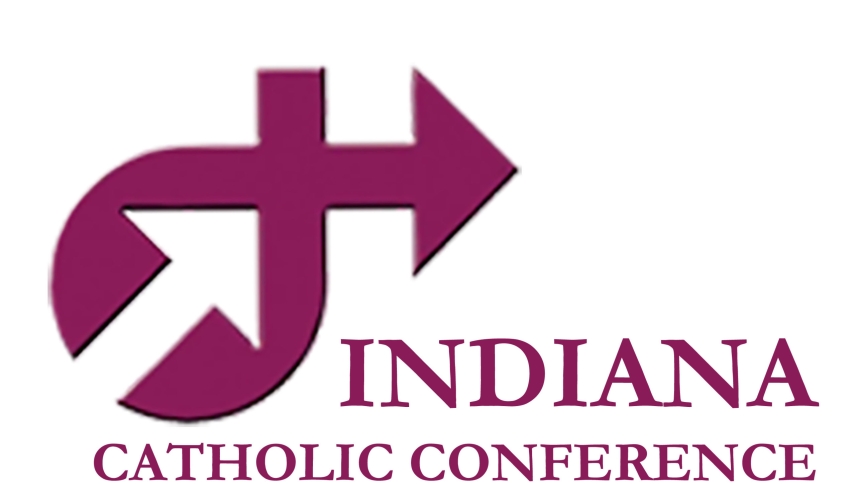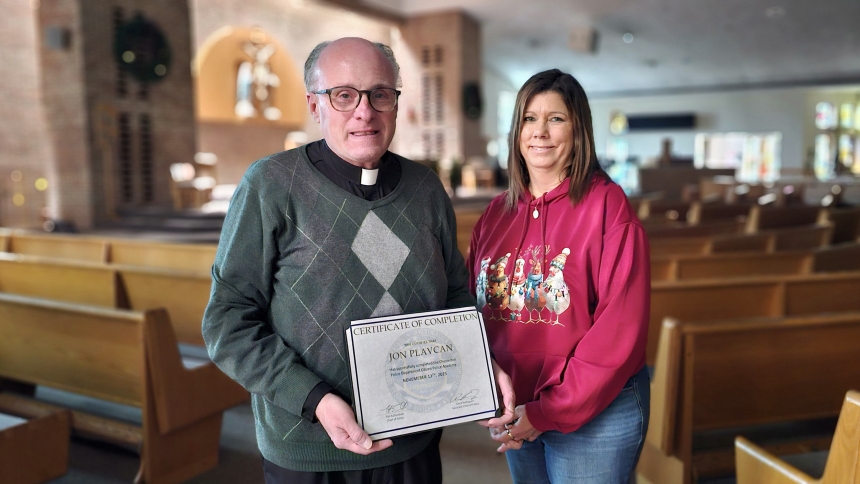
(OSV News) - Claire Guernsey was eager to share her deeply held faith with the restless audience of Irish schoolkids. The students, however, didn't share her enthusiasm. In fact, they were practically surly.
"They did not want us there," Guernsey laughed, remembering the uncomfortable situation that occurred more than once during her two terms as a team member with NET Ireland, a Catholic youth ministry program specializing in school and parish ministry. Sometimes -- as she and her fellow team members conducted school retreats -- "they were not receptive at all."
Each year since 2004, NET Ireland - the "NET" in its name stands for "National Evangelization Teams" - recruits and trains young adults to evangelize more than 20,000 youth in churches, schools and parishes across Ireland.
Guernsey, an American who is an English literature major in her senior year at Christendom College in Front Royal, Virginia, served two stints with NET Ireland, from September 2020-May 2021, and February 2021-June 2021. She returns next year to work at Mater Dei Academy in Cork.
While Ireland's public schools are still referred to as "Catholic," Guernsey told OSV News she quickly learned they are equivalent to secular American public schools -- but with the option to teach religion. The lack of sacramental preparation, she said, was painfully obvious, and some schools had no desire for an orthodox Catholic witness within their walls.
As of 2021, out of Ireland's 3,126 standard schools, 88% are run by the Catholic Church, 5.7% are run by the (Anglican) Church of Ireland; 1% are run by other religious organizations; and 5.4% are run by organizations with no religious affiliation.
About 15 years ago, a 2008 survey by the Irish Primary Principals Network found 72% of parents wanted primary schools managed by the state rather than any specific faith denomination.
"I think a lot of what my team in particular was doing was just planting seeds," Guernsey suggested, recalling the challenging environment.
"You would have students coming in saying, 'I'm an atheist; I'm this, I'm that; I don't believe in this; I hate the church.' They're very outspoken about everything they don't agree with," Guernsey said. But the feedback forms, even from those most negative about the church, started to show signs of movement. "There was one specifically I remember that said, 'I still don't like the church … but when we were praying, I felt a peace like I've never felt before.'"
There were other encouraging episodes, too, Guernsey said, recalling one shy and awkward retreat-goer. "He didn't want to talk about anything related to the faith, for sure," she said. "But by the end of it, he was like, 'I want to do NET, too!' He's texting his friends to put together a playlist of Christian music they can listen to, and they're organizing retreats to go on together."
"The young people that are into their faith are so convicted," shared Guernsey. "You really see the pockets of revival that are ready."
Ultimately, she said, "we're facilitating an encounter with Christ. And if they're ever going to get on the same page with embracing the life of the Catholic Church, it's going to have to start with an encounter with Christ."
Guernsey and her colleagues approached their evangelization with a mix of realism and optimism.
"We knew that when we walked away, it's not like 90% of these students were about to become super-Catholic all of a sudden," Guernsey reflected. "But a few of them might walk away saying, 'I want to start praying' or saying, 'OK, maybe religion isn't absolutely insane.'"
Sean Flack, another American Catholic missionary, currently serves in Ireland with FOCUS (Fellowship of Catholic University Students), the collegiate outreach ministry on a mission to share the Gospel with university students in America, Austria, Ireland, Germany, Mexico and the United Kingdom. Missionaries are trained in church teaching, prayer, Scripture, evangelization, and discipleship, and meet other students wherever they are in their faith journey.
In July 2017, Flack took a call from his FOCUS supervisor. It was an invitation to go to Ireland.
"I asked how long I had to discern it," Flack recalled. "He answered, 'Pray about it and I'll call you in the morning.' I was in Dublin a month later."
Originally from Texas, Flack has been a FOCUS missionary for almost a decade. He is now a FOCUS regional director in Ireland and also trains his talents upon philanthropy. Like Guernsey, he too was more than slightly surprised at Ireland's sometimes-aggressive secularism.
"I expected more faith practice than I've encountered, even if it was only cultural faith practice," Flack told OSV News. "I expected to be able to invite people to Bible studies and for them to be open to that experience." But slowly, students began to attend.
"The time it takes to win the trust of an Irish person is considerable -- especially as a foreigner," Flack shared. "People generally are afraid of the church and of being considered religious, even if they do go to Mass regularly."
Given their fear of being labeled religious, Flack thinks "people haven't really thought much about God. They have mostly only thought of the structures of the church."
But again -- like Guernsey -- Flack has witnessed sparks among the embers. "There is a nucleus of faith growing. The faithful really love Jesus Christ and his church. They have to. It is so crazy to be Catholic in Ireland today that you must choose to stay close to our Lord."
From this kind of intentional discipleship, more vocations to religious life are also blossoming, Flack reported.
"Several religious orders have experienced men joining for formation over the last few years," he said. "Since we were invited to Ireland, we have had six of our students go to seminary and one go to a convent."
Neil Mather, who is Irish and a first year FOCUS missionary on the University College Dublin campus, told OSV News he is impressed by the zeal of his American counterparts.
"In recent years, we had FOCUS missionaries come onto campus like a squad of Navy SEALS and lives were changed," Mather said. "Suddenly daily Mass attendance increased from four people to 30, vocations to the priesthood sprouted from Bible study participants, and students like myself encountered real and good friendships that were centered in Christ."
Flack is determined, because ultimately - like another missionary named Paul - he is "not ashamed of the Gospel" (Rom. 1:16).
"We cannot be afraid to share the Gospel in a culture like Ireland just because people generally do not want to hear the Gospel," Flack said. "We must again go back to Jesus Christ and get to know him personally, and then learn our faith."


